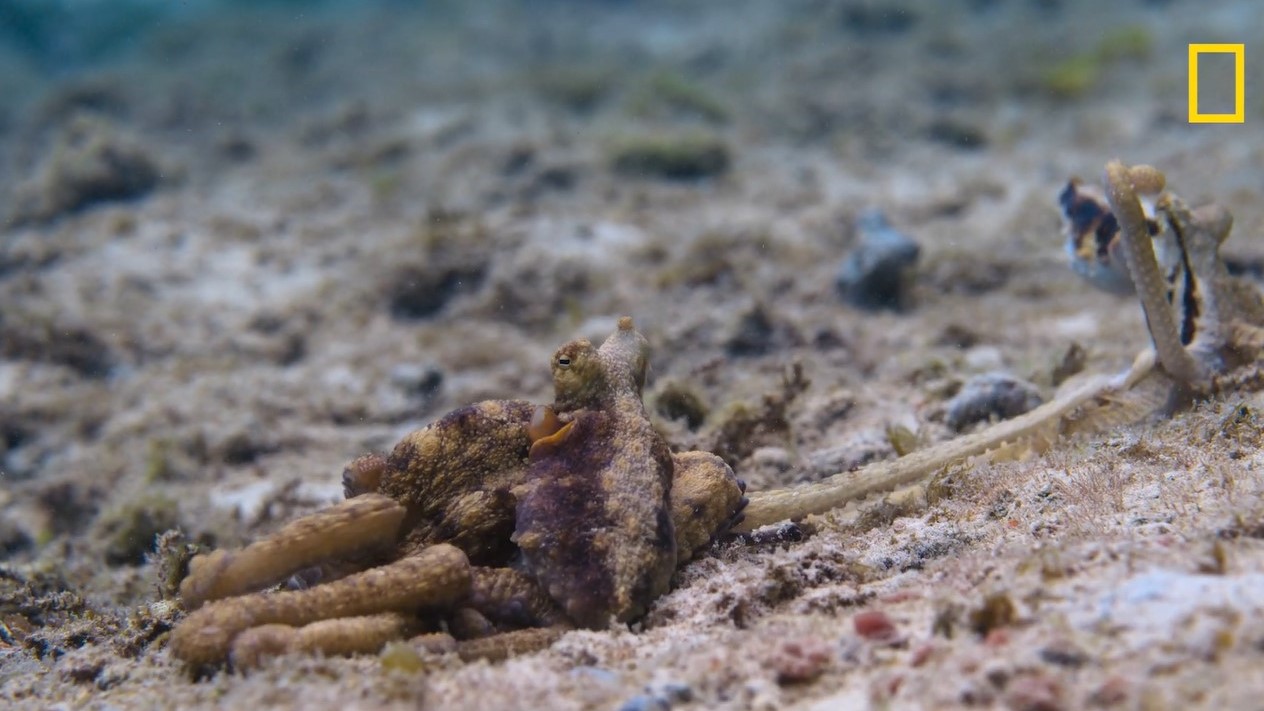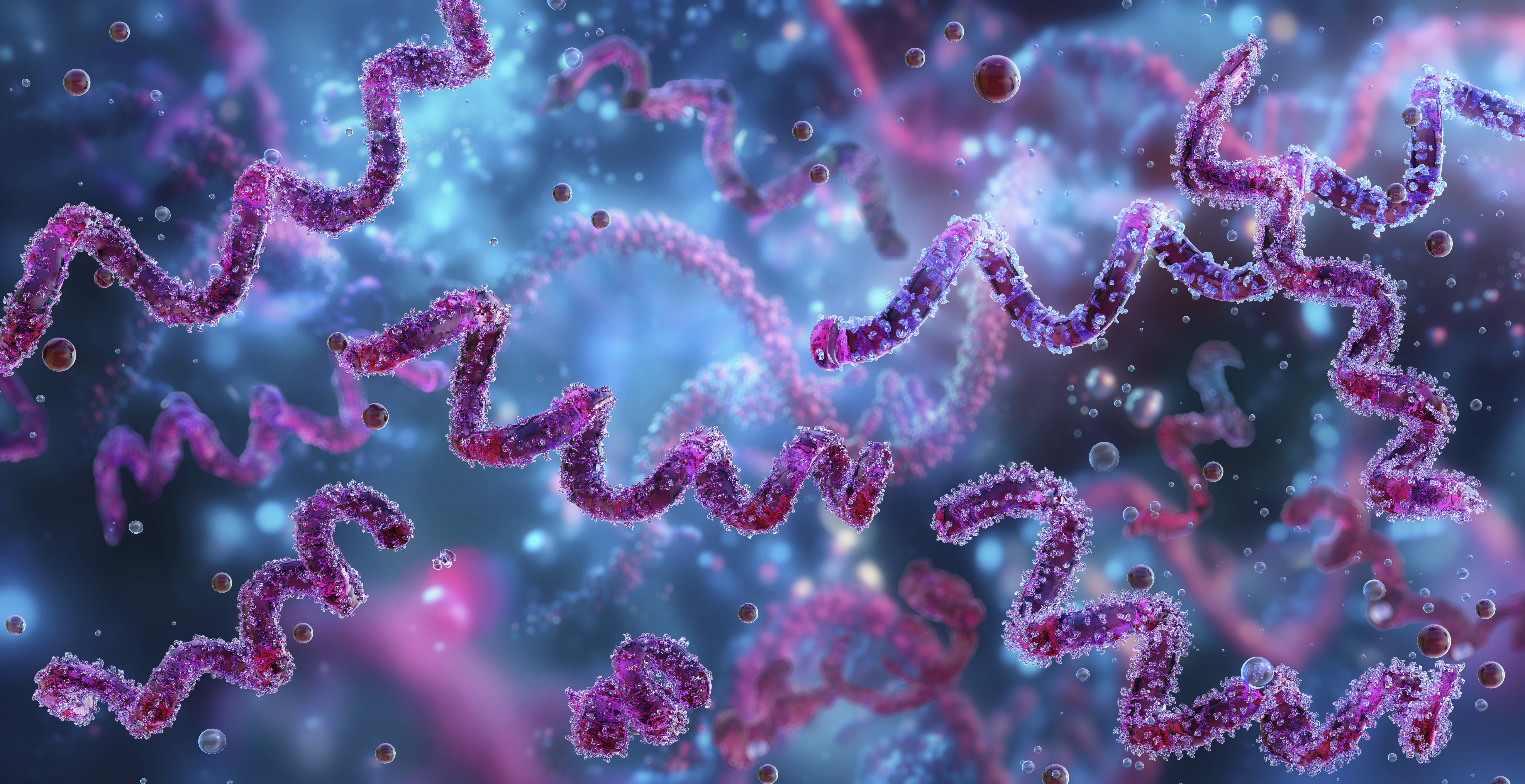Watch female octopus drag male around during sex in rare footage captured off Indonesian island
Unusual octopus mating session captured in rare and comical footage filmed off the Indonesian island of Bunaken for new National Geographic show.
Get the world’s most fascinating discoveries delivered straight to your inbox.
You are now subscribed
Your newsletter sign-up was successful
Want to add more newsletters?

Delivered Daily
Daily Newsletter
Sign up for the latest discoveries, groundbreaking research and fascinating breakthroughs that impact you and the wider world direct to your inbox.

Once a week
Life's Little Mysteries
Feed your curiosity with an exclusive mystery every week, solved with science and delivered direct to your inbox before it's seen anywhere else.

Once a week
How It Works
Sign up to our free science & technology newsletter for your weekly fix of fascinating articles, quick quizzes, amazing images, and more

Delivered daily
Space.com Newsletter
Breaking space news, the latest updates on rocket launches, skywatching events and more!

Once a month
Watch This Space
Sign up to our monthly entertainment newsletter to keep up with all our coverage of the latest sci-fi and space movies, tv shows, games and books.

Once a week
Night Sky This Week
Discover this week's must-see night sky events, moon phases, and stunning astrophotos. Sign up for our skywatching newsletter and explore the universe with us!
Join the club
Get full access to premium articles, exclusive features and a growing list of member rewards.
A young male octopus gets comically dragged around the ocean floor mid-sex by an impatient female in rare new footage.
The clip, filmed for the new National Geographic miniseries "Secrets of the Octopus," reveals an algae octopus (Abdopus aculeatus) in shallow water just off the coast of the island of Bunaken in Indonesia. The footage captures the moment he spots a female and begins his courtship with a passing cloud display — a behavior thought to be a form of communication, where an octopus' skin changes color in a wave-like manner.
"The passing cloud display means different things to different cephalopods," series producer Adam Geiger told Live Science in an email. "With the algae octopus, the passing cloud display seems to be an expression of interest in mating… a general 'I'm available' signal."
Related: Octopuses torture and eat themselves after mating. Science finally knows why.
After the female responds with her own colorful display, he makes his move, sticking up a papilla — a skin bump the octopus can control to change its body shape — above his eye. He also creates a black and white striped pattern on his back to indicate he wants to fight or mate, marine biologist and filmmaker Alex Schnell says in the clip.
The female is receptive, so he extends his specialized mating arm, known as a hectocotylus, and awkwardly attempts to find her mantle cavity — a muscular structure containing the vital organs, where sperm is deposited during mating. But he appears to take too long, and the female gets "impatient and hungry," series narrator Paul Rudd says in the footage.

The female then starts pulling the male around as he hangs on with his hectocotylus. "It was surprising, and comical, to witness mating on the move," Geiger said. "The female [is] essentially dragging the male — hanging on for dear life — over the reef while she got on with other things. The Algae octopus were the only species in the series we witnessed mating this way, but who knows, others may do this, too."
Observing octopus sex is relatively rare, and researchers have only observed mating behaviors in about a dozen species, Jennifer Mather, a cephalopod expert at the University of Lethbridge in Canada, told Live Science in 2015.
Most octopuses live solitary lives, only coming together to mate, but the algae octopuses in the new series were surprisingly social, Geiger said.
"We were thrilled by how frequently they interacted — just saying hello, fighting, or mating. But they move very quickly through their little community, so following an individual was really tough," he added. "On one lucky day, after weeks of filming, we managed to track our hero for more than two hours until he successfully found a receptive female."
Algae octopuses are also pretty small — their bodies are around 3 inches (7 centimeters) and their arms are around 10 inches (25 cm) long. They were in water that was just 24 inches (60 cm) deep, so even tiny surface waves tossed them around. This made filming the interactions even tougher, Geiger said.
"Imagine trying to look through a straw to follow an ant, in a hurricane! Keeping a camera steady and the image composed and focussed while being sloshed about made filming these quick-moving octopus one of the most challenging sequences of the series," Geiger said. "Even with our team's nearly 80 years of combined experience filming underwater, the physics of these conditions were unique."
"Secrets of the Octopus" premieres on April 21 at 8 p.m. ET on National Geographic and is available to stream on April 22 on Disney+ and Hulu.
How to watch "Secrets of the Octopus"
You can watch "Secrets of the Octopus" on the cable channel National Geographic on Sunday, April 21 at 8pm ET. After that you can stream the show on Hulu in the U.S. and Disney Plus worldwide on April 22.
If you don't have cable, there are a few options you can try to watch the show. FuboTV has an entry-level Pro Plan, which gives you over 100 channels for $74.99 a month, but if you just want to dip your tentacles in (or should that read arms?) also comes with a free 7-day trial. Otherwise you could give Sling TV a go, which is currently $20 a month for the Sling Blue plan, a 50% saving on its standard price.
Get the world’s most fascinating discoveries delivered straight to your inbox.

Hannah Osborne is the planet Earth and animals editor at Live Science. Prior to Live Science, she worked for several years at Newsweek as the science editor. Before this she was science editor at International Business Times U.K. Hannah holds a master's in journalism from Goldsmith's, University of London.
 Live Science Plus
Live Science Plus










